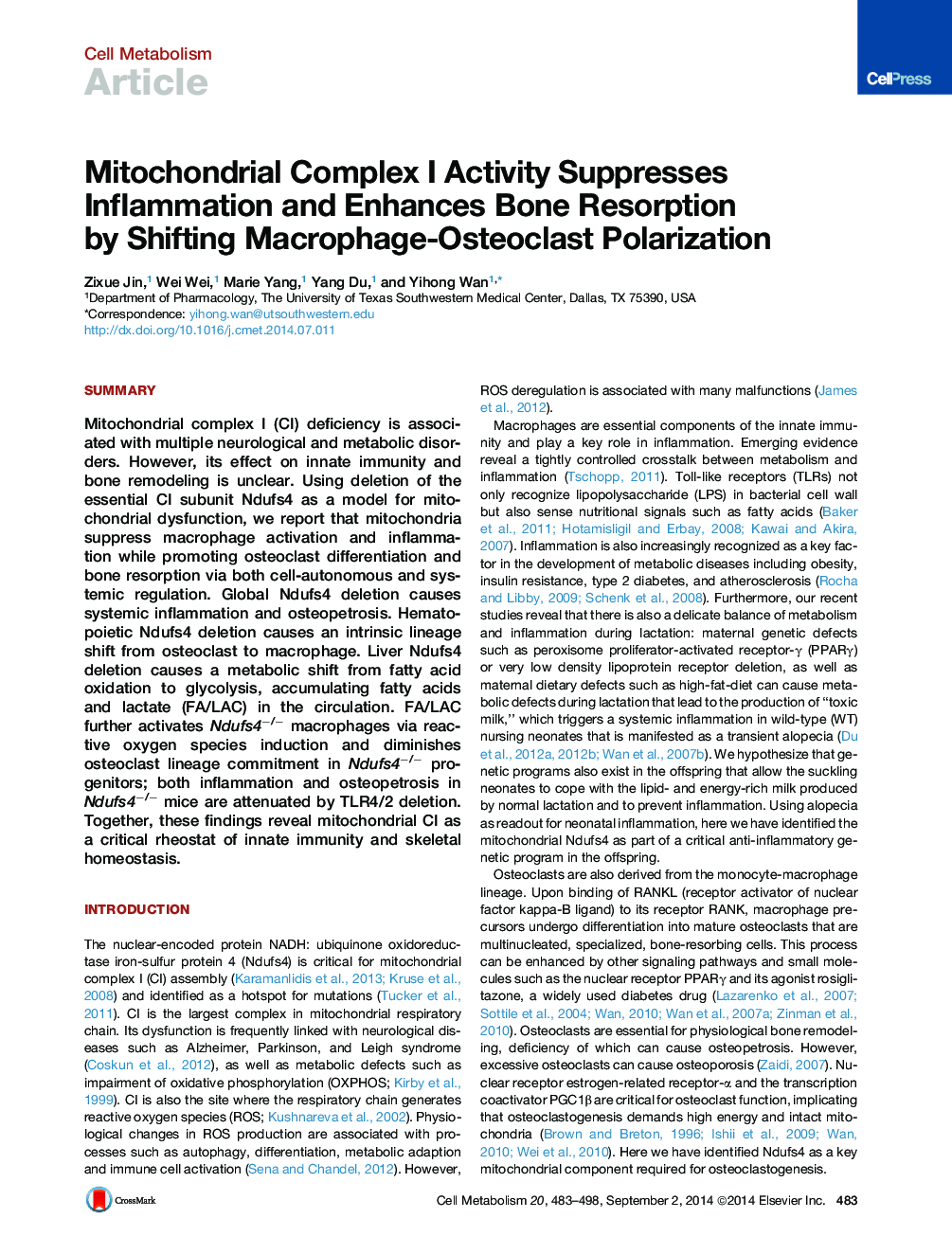| Article ID | Journal | Published Year | Pages | File Type |
|---|---|---|---|---|
| 2792628 | Cell Metabolism | 2014 | 16 Pages |
•Mitochondrial dysfunction triggers macrophage activation and systemic inflammation•Mitochondrial dysfunction impairs osteoclast differentiation and bone resorption•Mitochondria play a cell-intrinsic role in osteoclast-macrophage lineage allocation•Mitochondria alter metabolism to modulate osteoclast-macrophage function
SummaryMitochondrial complex I (CI) deficiency is associated with multiple neurological and metabolic disorders. However, its effect on innate immunity and bone remodeling is unclear. Using deletion of the essential CI subunit Ndufs4 as a model for mitochondrial dysfunction, we report that mitochondria suppress macrophage activation and inflammation while promoting osteoclast differentiation and bone resorption via both cell-autonomous and systemic regulation. Global Ndufs4 deletion causes systemic inflammation and osteopetrosis. Hematopoietic Ndufs4 deletion causes an intrinsic lineage shift from osteoclast to macrophage. Liver Ndufs4 deletion causes a metabolic shift from fatty acid oxidation to glycolysis, accumulating fatty acids and lactate (FA/LAC) in the circulation. FA/LAC further activates Ndufs4−/− macrophages via reactive oxygen species induction and diminishes osteoclast lineage commitment in Ndufs4−/− progenitors; both inflammation and osteopetrosis in Ndufs4−/− mice are attenuated by TLR4/2 deletion. Together, these findings reveal mitochondrial CI as a critical rheostat of innate immunity and skeletal homeostasis.
Graphical AbstractFigure optionsDownload full-size imageDownload high-quality image (353 K)Download as PowerPoint slide
